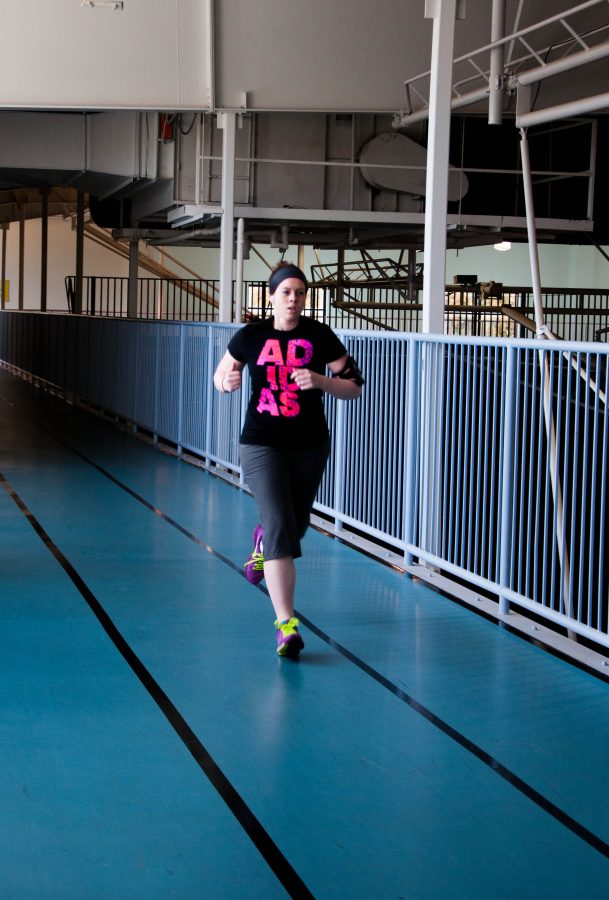According to the Centers for Disease Control and Prevention, 80 percent of American adults do not engage in the proper amount of weekly exercise. And the No. 1 excuse for not exercising? Lack of time, according to usnews.com.
But some students make time.
Lauren Gadingan, a junior exercise science major, has a weekly exercise routine consisting of cardio, strength training and flexibility training. She prioritizes exercise because it has greatly improved her health.
“Last semester I had severe back pain, so bad that I couldn’t sit for very long in class,” Gadingan said. “The orthopedist told me that my hamstrings were so tight that my back was doing all the work that my legs should’ve been doing. I’ve been stretching my legs every day, and since [then], I haven’t had any back pain.”
Stephanie Booth, a junior middle school education major, agrees with Gadingan, saying that exercise has improved her mindset.
“[Exercise] makes you happy by releasing endorphins,” Booth said. “It helps fight against depression, and it’s good for your heart.”
Booth gets her heart pumping every morning by rushing from her residence hall to the third floor of Alumni in 3 minutes.
Dr. Samuel Saldivar of the Division of Bible has learned how to fit exercise into his demanding schedule as a husband, father and faculty member.
An avid runner, Saldivar has run six marathons in the last five years, along with many shorter-distance races as well.
“If your mindset is ‘I’m too busy to exercise,’ then you’ll never exercise because life only gets busier,” Saldivar said. “We just need to force ourselves to exercise.”
Saldivar said his motivation for exercising stems from his desire to glorify God.
“I think we tend to separate the body and soul a little too much,” Saldivar said. “We all know we should read our Bibles, pray and evangelize, but that’s only half of who we are. I’m supposed to serve God with my body and my spirit, so I view exercise as a way to do that.”
Saldivar recommends setting up a schedule that outlines the specific times you will set aside for exercise, as well as going to the gym with a workout plan in mind to avoid wasting time. He also suggests making goals and adding variety to workout routines to stay motivated.
Landon Bright, head coach for the BJU Bruin’s cross-country team, says consistency is the key factor.
“It takes about a month to make or break a habit,” Bright said. “Just doing something habitually is what it takes to see long-term results.”
Bright recommends picking an exercise that you enjoy and that is a good fit for your fitness level. He recommends a combination of cardio and strength training, but says even a walk is better than nothing.
Bright said that though a walk has benefits, studies have shown that 30 minutes of high-intensity cardio is much more effective for long-term benefits. Bright also mentioned that anything pool-related is a good option for those who desire low-impact exercises.
Many exercise options are available for students both on and off campus. Paris Mountain and the Swamp Rabbit Trail are both a 10-minute drive off campus and provide many trails for running, biking and hiking.
On campus, students can take advantage of indoor and outdoor tracks, a junior Olympic-sized swimming pool and men’s and women’s fitness centers. The hours to these facilities can be found at http://www.bju.edu/about/campus-map/dfhsemester.pdf.


























































